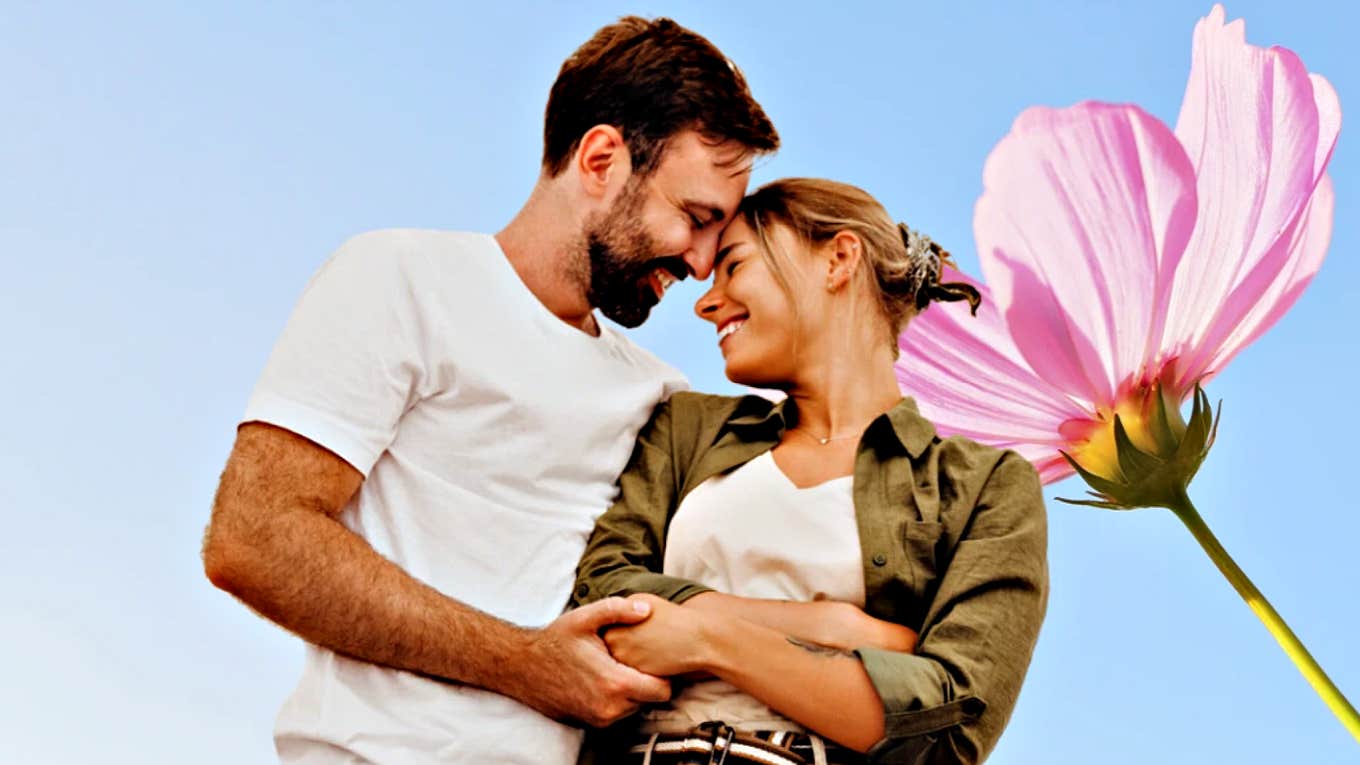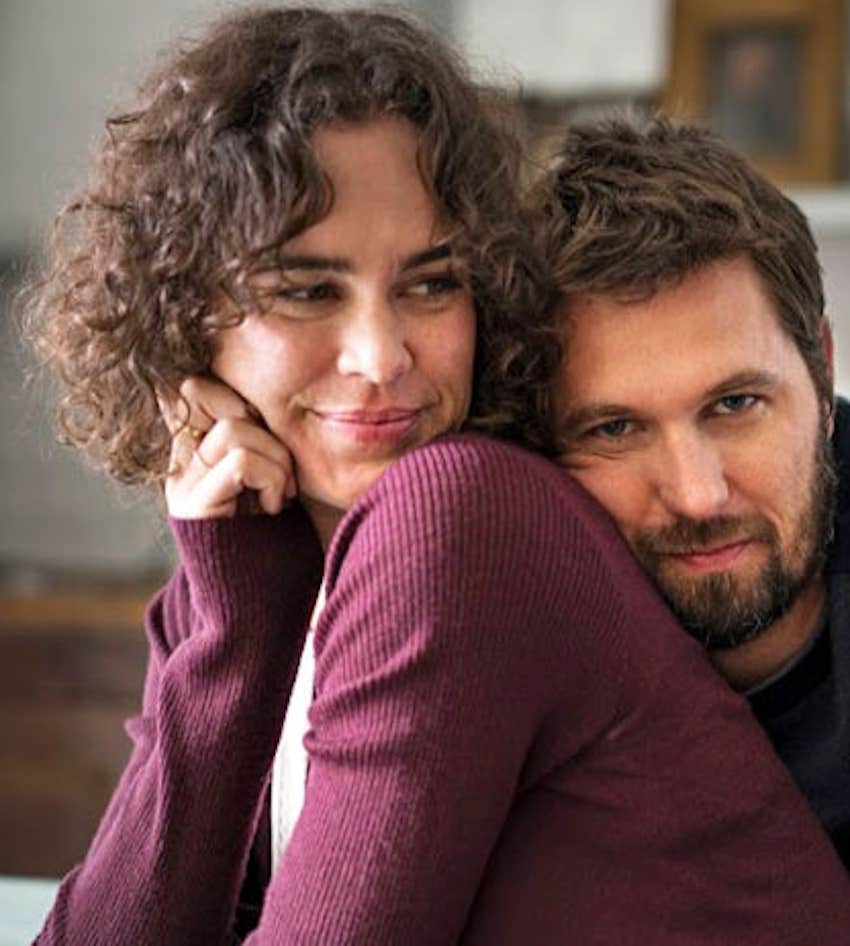The Most Powerful Tool For Building Relationships That Actually Last
How to show up for the person you love, in the ways they really need.
 Photo: Dean Drobot / Shutterstock + Canva Creative Studio
Photo: Dean Drobot / Shutterstock + Canva Creative Studio If you want to improve your relationship, you must be willing to take action and be committed to seeing it through. This is how to be the best partner you can be, while you create a happier and healthier relationship. The tricky part is when you think you are willing, but the results show you are not.
Have you been committed to doing the wrong things in hopes of a better relationship? Growing up, we aren’t always taught the essential commitments required for a successful relationship. We learn by interpreting what we see — and sometimes don’t see ourselves in the situation.
So what do we need in order to build a relationship that lasts? A roadmap that helps us see ourselves for who we truly are, so we can become the best version of ourselves.
The tool that benefits relationships most
Being able to identify our goals, see our own roles and patterns, and show up for the people we love is what makes us fantastic partners. Sometimes it takes a detailed roadmap to help us find our way there.
The Conscious Leadership Group (CLG), founded by Jim Dethmer and Diana Chapman, has created a roadmap that many find helpful.
They have compiled a list of questions that help you determine your willingness to shift the behavior patterns, thoughts, and beliefs that interfere with you being the best partner you can be. They also have developed a list of commitments that support your willingness.

Photo via Getty
The first four commitments are crucial to creating a healthier, more open, and honest relationship.
To determine your willingness, identify one of your primary relationship problems. Identify one that is present in your relationship currently and repeatedly interferes with you feeling close to and open with your partner. For example, "They never help around the house and think I am pestering when I remind them what needs to be done."
Ask yourself the following questions and see if you're ready and willing to commit to yourself, your loved one, and your relationship. By following this roadmap, you will find the best version of yourself to bring to your relationship.
Four key stops on your healthy relationship roadmap:
1. Take responsibility.
Ask yourself: Am I willing to take 100 percent responsibility for this issue? Am I willing to stop blaming and criticizing others and myself?
Commitment: I commit to take full responsibility for my life and physical, emotional, mental, and spiritual well-being. I commit to supporting others to taking full responsibility for their lives.
2. Let go of your ego.
Ask yourself: Am I willing to let go of being right? Am I willing to get more interested in learning than defending my ego?
Commitment: I commit to growing in self-awareness. I commit to regard every interaction as an opportunity to learn. I commit to curiosity as a path to rapid learning.
3. Be authentic.
Ask yourself: Am I willing to feel all of my authentic feelings? Am I willing to allow others to have all their feelings?
Commitment: I commit to feeling my feelings through to completion. They come, and I locate them in my body, then move, breathe, and vocalize them so they release all the way through.
4. Practice healthy communication skills.
Ask yourself: Am I willing to reveal to others all my withholding? Am I willing to speak unarguably? Am I willing to listen consciously to others?
Commitment: I commit to saying what is true for me. I commit to being a person to whom others can express themselves with candor.
It is critical to understand that being stuck or unwilling to shift is not bad.
Knowing where you are unwilling is essential to begin the process of awareness so that you don’t keep spinning your wheels. There is just as much learning and progress in being unwilling as being willing. It is in knowing where you are that you are open to learning. You can look at these questions and commitments, find where you are unwilling, and just sit with it, watching yourself in action.
If you are unwilling to let go of being right, notice the next time it creates disconnection. For example, you notice your partner tries a light switch, and the light does not go on. Undeterred, they continue to a lamp, turn that on, sit on the couch, and read the paper.
Your story that they do nothing around the house is flashing in your mind. Then you point out that the light bulb needs to be changed. Notice your tone of voice, body language, and emotional state as you speak to your partner.
Observe how you show up when you believe you are right and they do nothing around the house. How do you react when they do not take immediate action? What do you notice in them? Do they become defensive? Watch the pattern of behavior and thoughts unfold and see how it invites a reliable response from them. Do you feel close to them at that moment? With your pattern in full view, you get to decide if you want to continue to be right or if you want to create a win-win solution that gets both your needs met.
Whether you are willing in one moment does not mean you will be unwilling the next. So keep noticing and asking, “At this moment, am I willing to shift?” When you constantly shine a light on your patterns (which takes commitment), you will find willingness closely follows.
Michelle Thompson is a life coach specializing in personal and relationship transformation, helping stuck individuals and couples improve their positive energy flow, reconnect with their inner selves and their partners, and embrace their capacity to love more fully.

